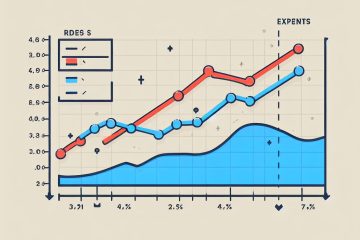Choosing the right mortgage is a critical decision that significantly impacts your financial future. Among the various options available, Adjustable Rate Mortgages (ARM) stands out as a unique choice, offering both benefits and risks. In this blog post, we will explore the advantages and disadvantages of an ARM, empowering you to make an informed decision that aligns with your financial goals and risk tolerance.
1. The Basics of an Adjustable Rate Mortgages (ARM)
An Adjustable Rate Mortgage is a type of home loan with an interest rate that fluctuates over time based on market conditions. Unlike a Fixed-Rate Mortgage, where the interest rate remains constant throughout the loan term, an ARM’s rate adjusts periodically, typically after an initial fixed-rate period.
2. Benefits of an Adjustable Rate Mortgages
- Lower Initial Rates: ARMs often offer lower initial interest rates compared to fixed-rate mortgages. This can lead to lower monthly payments during the initial fixed-rate period, making homeownership more accessible.
- Potential Savings: If interest rates decrease over time, borrowers with ARMs may experience reduced monthly payments, leading to potential cost savings.
- Flexibility: ARM borrowers may have the flexibility to take advantage of lower rates by refinancing or selling their home before the adjustment period, particularly if they plan to move within a few years.
3. Risks of an Adjustable Rate Mortgages
- Rate Volatility: The primary risk of an ARM is interest rate volatility. The rate can fluctuate based on market conditions, potentially leading to higher monthly payments.
- Payment Shock: In periods of rising interest rates, borrowers may experience significant payment increases, leading to potential financial strain.
- Uncertainty: ARMs can create uncertainty for homeowners as they cannot predict future interest rate adjustments, making long-term budgeting challenging.
4. ARM Suitability
The suitability of an ARM depends on individual circumstances. Borrowers who plan to sell or refinance before the term is completed, or those who anticipate interest rates to decrease, may find ARMs beneficial. On the other hand, borrowers who prefer payment stability and have a long-term homeownership plan might opt for a Fixed-Rate Mortgage.
Conclusion
Choosing an Adjustable Rate Mortgage involves carefully weighing the potential benefits against the risks. While ARMs can offer lower initial rates and potential cost savings, they also come with the uncertainty of rate adjustments and possible payment shock. Understanding the terms and your long-term financial goals is essential in determining if an ARM aligns with your unique circumstances. Consulting with a mortgage professional, like us, can help you make an informed decision and select the mortgage that best suits your needs and financial objectives.


